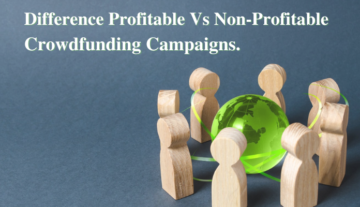
Real estate crowdfunding has emerged as an alternative form of financing for real estate projects. It enables investors to pool their resources and invest in real estate projects that were previously inaccessible to them. This innovative form of crowdfunding has gained popularity in recent years, but it is important to understand the legal and regulatory framework surrounding it.
In this blog, we will discuss the legal and regulatory considerations that one must keep in mind while engaging in real estate crowdfunding.
Securities Regulations:
Real estate crowdfunding is regulated by securities laws, which vary from country to country. In the United States, the Securities and Exchange Commission (SEC) has issued guidelines for crowdfunding portals that offer securities. These guidelines include requirements for registration, disclosures, and investor protections. It is important to ensure that the crowdfunding platform is compliant with these regulations.
Anti-Money Laundering (AML) Regulations:
Real estate crowdfunding platforms must comply with AML regulations to prevent the platform from being used for money laundering or other illegal activities. AML regulations require platforms to conduct due diligence on investors and to report suspicious transactions to relevant authorities.
Tax Regulations:
Real estate crowdfunding investors must comply with tax regulations in the jurisdiction where the investment is made. Tax laws can be complex and vary from country to country, so it is important to seek advice from a tax professional to ensure compliance.
Property Laws:
Real estate crowdfunding investors must also comply with property laws in the jurisdiction where the property is located. These laws govern property ownership, use, and development. Investors should be aware of any restrictions or limitations on property use before investing.
Investor Protection:
Real estate crowdfunding platforms must provide adequate investor protection to ensure that investors are not subject to fraud or misrepresentation. The platform should provide transparent and accurate information about the investment, as well as a clear and understandable explanation of the risks associated with the investment.
Crowdfunding Platform Risk:
Investors must also consider the risks associated with the crowdfunding platform itself. The platform may not be able to attract enough investors to fund the project, or the platform may fail altogether, leaving investors with little recourse. Investors should carefully evaluate the platform’s track record and financial stability before investing.
In conclusion, real estate crowdfunding can be a great way to invest in real estate projects, but it is important to understand the legal and regulatory framework surrounding it.
- SEO Powered Content & PR Distribution. Get Amplified Today.
- Platoblockchain. Web3 Metaverse Intelligence. Knowledge Amplified. Access Here.
- Source: https://www.fundraisingscript.com/blog/legal-and-regulatory-considerations-understanding-the-legal-and-regulatory-framework-surrounding-real-estate-crowdfunding/?utm_source=rss&utm_medium=rss&utm_campaign=legal-and-regulatory-considerations-understanding-the-legal-and-regulatory-framework-surrounding-real-estate-crowdfunding
- 1
- a
- Able
- About
- accurate
- activities
- advice
- alternative
- AML
- AML Regulations
- and
- associated
- Authorities
- before
- being
- Blog
- carefully
- clear
- commission
- complex
- compliance
- compliant
- conclusion
- Conduct
- Consider
- considerations
- country
- Crowdfunding
- crowdfunding platforms
- Development
- diligence
- Disclosures
- discuss
- emerged
- enables
- engaging
- enough
- ensure
- estate
- evaluate
- exchange
- explanation
- FAIL
- financial
- financial stability
- financing
- form
- Framework
- fraud
- from
- fund
- great
- guidelines
- HTTPS
- Illegal
- important
- in
- inaccessible
- include
- information
- innovative
- Invest
- investing
- investment
- investor
- investor protection
- Investors
- Issued
- IT
- itself
- jurisdiction
- Keep
- Laundering
- Laws
- leaving
- Legal
- limitations
- little
- located
- made
- mind
- money
- Money Laundering
- offer
- ONE
- Other
- ownership
- PHP
- platform
- Platforms
- plato
- Plato Data Intelligence
- PlatoData
- pool
- popularity
- prevent
- previously
- professional
- project
- projects
- property
- protection
- provide
- Rate
- real
- real estate
- Real Estate Crowdfunding
- recent
- record
- Registration
- regulated
- regulations
- regulatory
- relevant
- report
- require
- Requirements
- Resources
- restrictions
- Risk
- risks
- SEC
- Securities
- Securities and Exchange Commission
- Securities Laws
- Seek
- should
- So
- Stability
- States
- subject
- Surrounding
- suspicious
- tax
- The
- their
- to
- track
- Transactions
- transparent
- understand
- understandable
- understanding
- United
- United States
- use
- votes
- which
- while
- will
- years
- zephyrnet











